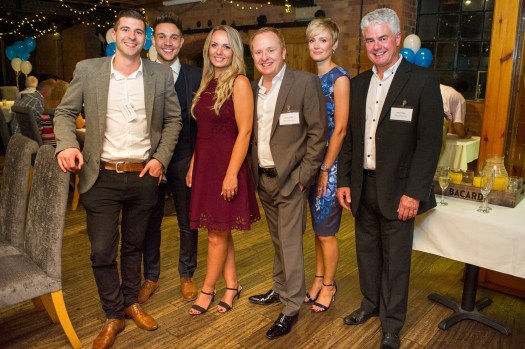West Bridgford property lettings specialist Slater & Brandley is a success story. They turned to Bennettwords for help with PR to mark the fifth anniversary of their business, gaining coverage in local media including the Nottingham Post as a result.
Here’s the press release:
From zero to 350: West Bridgford property lettings agency celebrates success
Business which started with no portfolio now boasts local expertise and scale in just five years
19 September, 2016
A West Bridgford-based property lettings business celebrates its fifth birthday this month with achievements including having a portfolio of 350 properties under its management.
Slater & Brandley, founded in September 2011, started out managing single let residential properties and in recent years have also become known as experts in managing Houses in Multiple Occupation (HMOs) for working professionals; the largest of which is the 32 bedroom, West One site in West Bridgford, where the company also has its offices.
With the local lettings market continuing to grow due to the lack of property to buy at affordable rates for first time buyers, Managing Director, Garry Slater and Partner, Will Brandley have set their sights on growing the company’s management portfolio to 1,000 rental properties within the next five years.
The Slater & Brandley business started from scratch in 2011, and is now registered as an ARLA (Association of Residential Lettings Agents) regulated managing agent, accredited by the UK’s foremost professional body for letting agents.
Garry Slater commented: ‘We were delighted to mark five years in business with a special event for our landlords at the Canalhouse on Thursday, 15 September, 2016. A good number of our landlord clients, trades and the whole Slater & Brandley team joined us in celebrating what is an extraordinary achievement.
‘Slater & Brandley has come a long way in just five short years. We cover a wide range of properties within a five mile radius of Nottingham City Centre and have become well-known for our success in managing both single let properties and Houses in Multiple Occupation (HMOs).’
‘Since the Brexit vote in June for the UK to leave the EU, an increasing number of new landlords have come to us. Reasons for this include many realising that property remains one of the best investment classes for the long-term’.
Mr Slater added: ‘As a result of the team’s sheer determination to focus on exceeding customer expectations we have grown faster than any of our competitors both organically, and because landlords are switching to us’.
‘Our business has been built on an unrivalled reputation for delivering “everything lettings should be” and we are now growing at a great rate as a result of building a strong local brand. We very much look forward to the next few years.’
Marking five great years (from left to right): Slater & Brandley’s Will Brandley, Nick Morgan, Joanna Benson, Garry Slater, Vanessa Pennington, and Garry Corpe.







